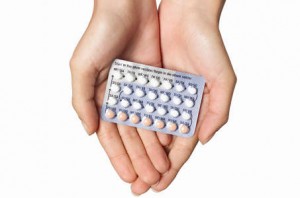The Debate Over Planned Parenthood
 Last week, Planned Parenthood won a brief reprieve from its enemies in the Republican Party in the fracas around the budget. The GOP made defunding the organization a key piece of its budget agenda but couldn’t get it past the president—for now. The down-to-the-wire argument was basically meaningless: Planned Parenthood’s abortion services must be paid with nonfederal funds. So the GOP effort to rob Planned Parenthood of federal funds has nothing to do with abortions. It’s a symbolic attack on an easy marker of pro-choice politics. For those of us who huddled around the wireless as the budget standoff dragged on, it was enraging to think the GOP held up a resolution because they wanted a token win on a social issue.
Last week, Planned Parenthood won a brief reprieve from its enemies in the Republican Party in the fracas around the budget. The GOP made defunding the organization a key piece of its budget agenda but couldn’t get it past the president—for now. The down-to-the-wire argument was basically meaningless: Planned Parenthood’s abortion services must be paid with nonfederal funds. So the GOP effort to rob Planned Parenthood of federal funds has nothing to do with abortions. It’s a symbolic attack on an easy marker of pro-choice politics. For those of us who huddled around the wireless as the budget standoff dragged on, it was enraging to think the GOP held up a resolution because they wanted a token win on a social issue.
But the Wall Street Journal’s James Taranto saw things differently:
It was the Democrats, not the Republicans, who were willing to shut down the government over subsidies to Planned Parenthood.
I’m not sure in the end who held whom hostage; I’m just glad they got down off the ledge.
The reality is that if the GOP were successful in its bid to defund Planned Parenthood, it probably would cause more abortions by hindering access to contraception, medical care and sexual health education—for men, women and children. Most of what Planned Parenthood does each day flies beneath the radar of political grandstanding. Let’s take Planned Parenthood of Southeastern Pennsylvania as one good example.
In 2010, PPSP provided services to 58,917 people at one of 15 health centers in the Greater Philadelphia area. These services included everything from colonoscopies and HPV typing to contraceptive devices and STD testing. (Abortions, by the way, account for only three percent of the services Planned Parenthood provides.)
Equally important are PPSP’s youth-oriented programs. These are efforts to engage young people before things spin out of control—before an abortion is even an option. By starting the education process early, PPSP advocates for healthy, safe approaches to sexual activity.
Last year, PPSP taught STEPS Toward Adolesence, a pre-puberty sexual education curriculum, in eight Philadelphia schools. PPSP has resident Health Resource Centers at Northeast, Strawberry Mansion and Overbrook high schools, where students can get one-on-one counseling sessions and testing for STDs. The organization also reaches kids at the Achieving Independence Center, where youth transition out of the Philadelphia foster care system. At the Center, PPSP provides individual support, peer education and workshops that cover topics like sexual orientation and date rape.
Young Latina girls in Philly are served by PPSP’s Latinas Unidas, a culturally competent approach to sex ed. The girls can talk condoms or smoking or fat-ism while they learn leadership skills and build self-esteem. It’s an important way to reach out to the Latino community.
PPSP’s other services include an LGBTQ youth center in West Chester and a program for teen moms. I could go on, but I’m not their PR person (nor have I spoken to anyone at the agency). You see my point, though—this is an agency that makes a difference in people’s lives, whether those people are Democrats or Republicans.
True, these are relatively small programs. A young girl who doesn’t know how to handle telling her older boyfriend she doesn’t want to have sex probably doesn’t seem that important when you’re in the Oval Office, fighting over a budget that may make history. But the direction that argument takes is going to matter very much for her—and for millions of young people like her.


